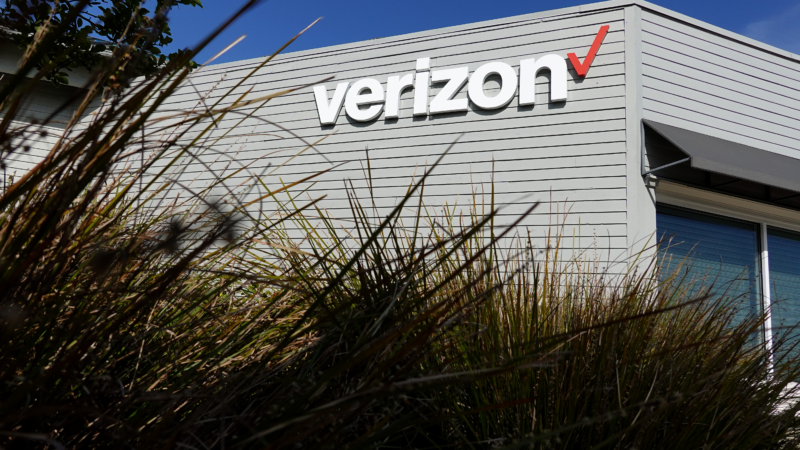Verizon ends DEI policies to get FCC’s blessing for its $20 billion Frontier deal
Verizon has become the latest big company to end policies around diversity, equity and inclusion, or “DEI,” in order to keep the U.S. government happy.
It seems to have worked: on Friday, the Federal Communications Commission approved Verizon’s $20 billion deal to buy broadband provider Frontier Communications. The FCC said that the deal will allow Verizon to upgrade the technology providing internet access to 25 states, including rural communities, and to deploy fiber-optic access to at least 1 million homes per year.
The FCC also touted the changes this deal will make to Verizon’s internal policies. In its announcement approving the deal, the FCC specifically cited Verizon’s commitment “to ending DEI-related practices.”
The approval came a day after Verizon sent a letter to the FCC, outlining how it is ending many efforts related to diversity, equity and inclusion. The telecommunications giant is removing references to DEI from its training materials and external websites; ending bonuses and goals tied to increasing the percentage of workers who are women or minorities; and dissolving its internal human resources department devoted to diversity-related policies, while reassigning those employees to general “HR talent objectives.”
“We are committed to creating a culture that leverages and values each person’s unique strengths and talents,” Verizon chief legal officer Vandana Venkatesh said in the Thursday letter to FCC Chairman Brendan Carr. (Spokespeople for Verizon did not respond to NPR’s requests for comment.)
“However, we recognize that the regulatory and policy landscape surrounding diversity, equity, and inclusion (‘DEI’) has changed,” Venkatesh added in her letter.
That’s an understatement. Five years ago, after George Floyd’s murder sparked national protests over systemic racism, corporate America rushed to promise workers and customers that it would create more equitable opportunities for people from all backgrounds — especially the minorities and women who have traditionally faced discrimination. But now, President Trump and his administration have declared war on such pledges.
Within hours of his January inauguration, Trump signed two executive orders seeking to end what he calls “illegal DEI” programs and policies in the federal government. His administration’s actions have accelerated an ongoing DEI retreat across corporate America, where some private employers are federal contractors, and thus subject to the executive orders — and others, like Verizon and rival T-Mobile, are actively seeking U.S. government approval for business dealings.
In late March, T-Mobile also told the FCC that it was ending some of its DEI-related goals and programs. A day later, the FCC approved T-Mobile’s deal to buy the fiber operator Lumos.
The FCC has taken an especially active role in the Trump administration’s campaign against diversity-related programs. Earlier this year, Carr opened investigations into Comcast, which owns NBCUniversal, and Walt Disney Co., which owns the ABC television network, over what he called concerns that they are “promoting invidious forms of DEI discrimination.”
But even many companies that aren’t regulated by the FCC, or actively seeking U.S. government approval for business deals, are quietly abandoning their DEI efforts. As NPR reported in February, many U.S. companies have now scrubbed the very word “diversity” from even their most boring public documents.
HUD proposes time limits and work requirements for rental aid
The rule would allow housing agencies and landlords to impose such requirements "to encourage self-sufficiency." Critics say most who can work already do, but their wages are low.
Paramount and Warner Bros’ deal is about merging studios, and a whole lot more
The nearly $111 billion marriage would unite Paramount and Warner film studios, streamers and television properties — including CNN — under the control of the wealthy Ellison family.
A new film follows Paul McCartney’s 2nd act after The Beatles’ breakup
While previous documentaries captured the frenzy of Beatlemania, Man on the Run focuses on McCartney in the years between the band's breakup and John Lennon's death.
An aspiring dancer. A wealthy benefactor. And ‘Dreams’ turned to nightmare
A new psychological drama from Mexican filmmaker Michel Franco centers on the torrid affair between a wealthy San Francisco philanthropist and an undocumented immigrant who aspires to be a dancer.
Bill making the Public Service Commission an appointed board is dead for the session
Usually when discussing legislative action, the focus is on what's moving forward. But plenty of bills in a legislature stall or even die. Leaders in the Alabama legislature say a bill involving the Public Service Commission is dead for the session. We get details on that from Todd Stacy, host of Capitol Journal on Alabama Public Television.
My doctor keeps focusing on my weight. What other health metrics matter more?
Our Real Talk with a Doc columnist explains how to push back if your doctor's obsessed with weight loss. And what other health metrics matter more instead.







